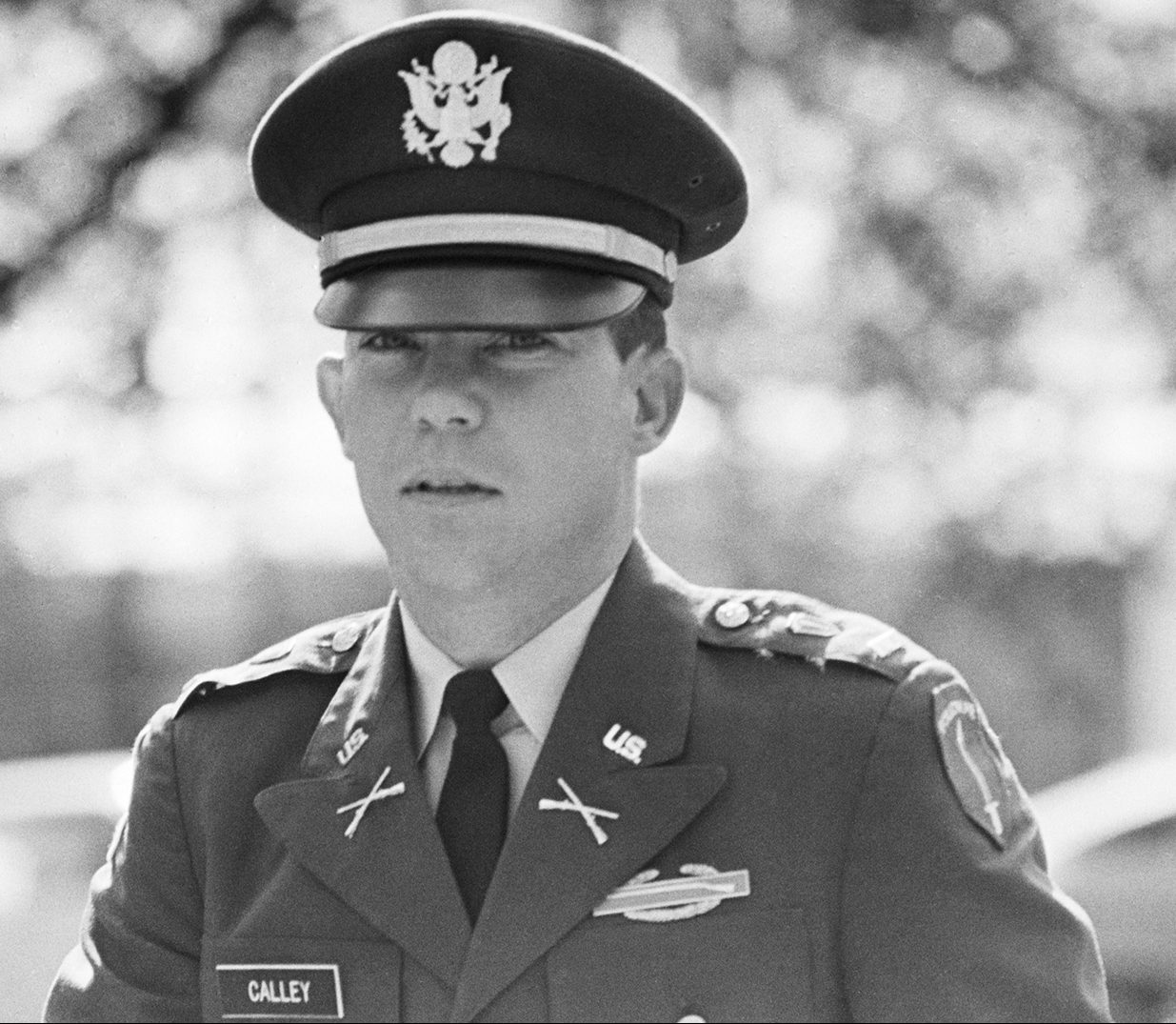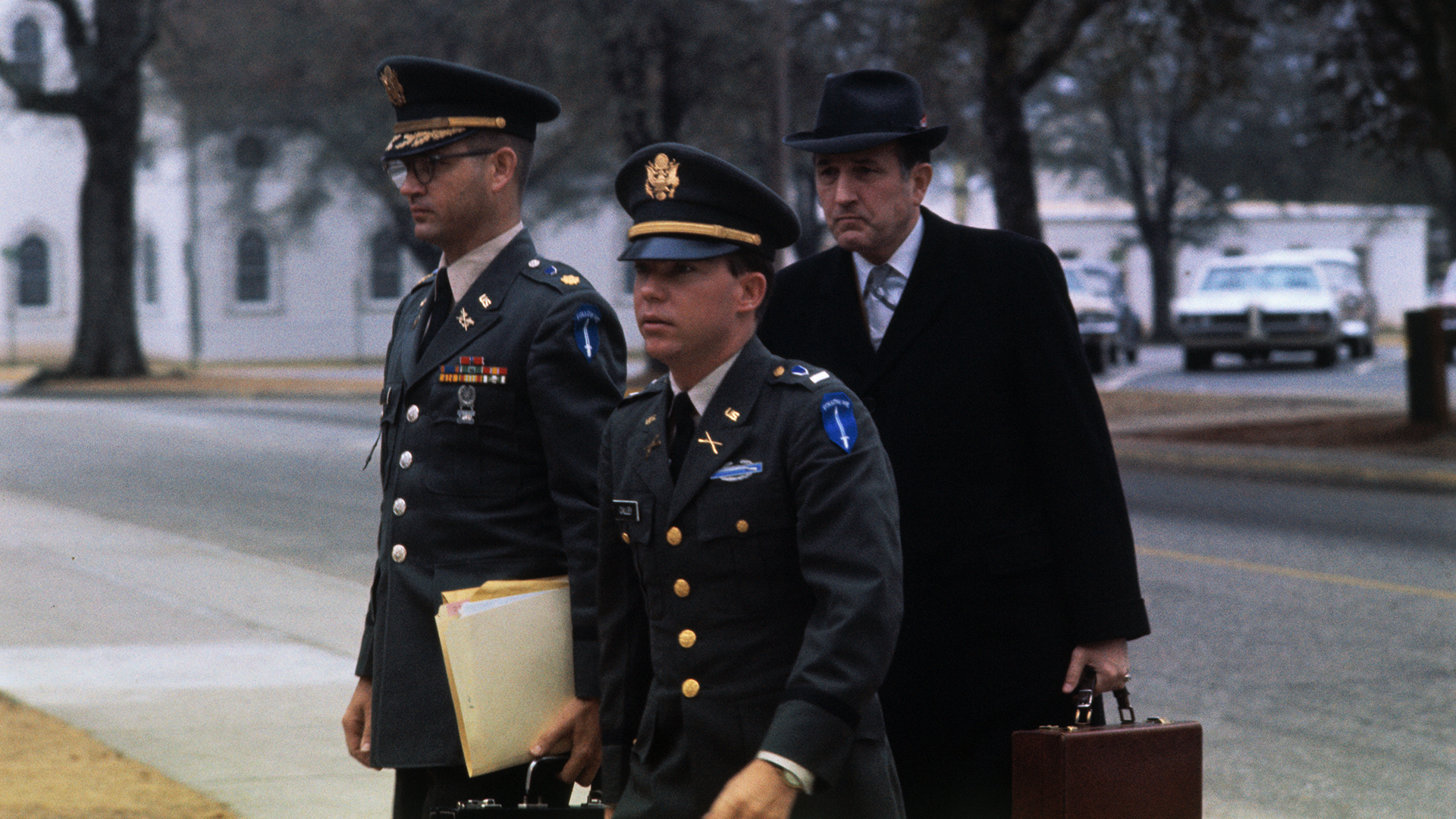
Both Army officers and enlisted soldiers are taught that the My Lai Massacre, in which U.S. soldiers killed more than 500 Vietnamese civilians, can never happen again.
The Army charged 25 people in connection with the March 16, 1968 incident, but only one soldier was convicted in a military court martial: Lt. William L. Calley Jr.
News emerged Monday that Calley died in April. Calley’s death at 80 was not publicized by the Army and was first reported by the Washington Post.
In the decades since Calley’s 1971 court-martial, professors at the U.S. Military Academy at West Point have used My Lai as a case study to teach cadets one of the most fraught concepts in military leadership: when and how a leader might one day be required to disobey an unlawful order and report war crimes, said retired Army Lt. Col. Pete Kilner, chair for character development at West Point.
Although West Point cadets have looked at incidents of misconduct from the Iraq war in recent years to learn about their moral and legal obligations as officers, the subject of My Lai continues to come up, Kilner told Task & Purpose.
“They learn about their professional obligation to disobey any illegal or immoral orders and to prevent and report any war crimes that occur,” Kilner said.

The topic arises in several required courses in moral philosophy, military law, and the professional practice of serving as commissioned officers, Kilner said. Instructors keep My Lai in their curriculums so that it will never be repeated.
Subscribe to Task & Purpose today. Get the latest military news and culture in your inbox daily.
One of those courses is Constitutional and Military Law, which all cadets are required to take during their senior year, said Army Col. Joshua F. Berry, a West Point professor and deputy head of the academy’s department of law and philosophy.
In the course’s section about the Law of Armed Conflict, the course looks at Calley in a lesson on command responsibility and obeying orders, Berry told Task & Purpose.
“Specifically, we look at the evolution of the theory of command responsibility under the laws of war, from the Civil War to World War II and the trial of General Tomoyuki Yamashita by an American Military Tribunal, to the trial of 1LT Calley for his actions at My Lai,” Berry said in an email. “We specifically look at part of Calley’s defense that the orders he received to kill everyone in the village were not ‘palpably illegal.’ We examine this to reinforce how ‘I was just following orders’ is not a defense to war crimes that are manifestly illegal.”
Over the years, many cadets have also learned about Army Chief Warrant Officer 2 Hugh Clowers Thompson Jr., who was able to save some Vietnamese villagers at My Lai by landing his helicopter between them and advancing U.S. soldiers. He then warned U.S. troops that he and his crew would fire on them if they tried to harm the Vietnamese.
“Officers are required to be the moral compass, even in the most difficult situations in war, and all soldiers have a duty to prevent – and if they can’t prevent then to report – any war crimes,” Kilner said. “Honorable military service demands physical and moral courage. Chief Warrant Officer 2 Hugh Thompson is an outstanding example of both.”
Teaching My Lai at basic training
Trainees who go through basic training at Fort Jackson, South Carolina, also learn about Thompson as an example of someone who did the right thing, said Erik Villard, a Vietnam specialist and the digital military historian at the U.S. Army Center of Military History.
“We feature figures from Army history throughout the last 250 years that exemplify values,” Villard told Task & Purpose. “One of those for the Vietnam War period is Hugh Thompson: He represents integrity. This is a guy who put everything on the line to do what was right.”
The Army is planning to expand the lessons on Thompson and other historical figures to all basic training centers, Villard said.
Following the courts-martial for the My Lai Massacre, the Army began embedded staff judge advocates throughout the operational force to make sure the Army upholds the ethics and values to which it aspires, Villard said.
Villard recalled one time when he went to Kuwait in 2014 at the start of the U.S.-led campaign against the Islamic State group, he saw a three-star U.S. general consult a military attorney before ordering an airstrike in Syria.
“He turns to his JAG [Judge Advocate General], and he says, ‘Is this legit?’” Villard recalled. “Is there anything we’re not thinking of? And, he has to get that sign off before he actually moves forward. That is now a feature that I saw in Afghanistan too. You have folks like that who are keeping an eye out, and if there are any suggestions that something isn’t right, that is part of their mission is to go hunt it down. That is absolutely a positive out of the terrible events of My Lai.”
Massacre revealed by a door gunner
In the aftermath of My Lai, Army officers including Maj. Gen. Samuel W. Koster Sr. were accused of trying to cover up what had happened. The incident came to light after Ron Ridenhour, a former Army helicopter door gunner, alerted lawmakers to what he had learned about the massacre.
Calley was convicted in 1971 for the deaths of 22 people and initially sentenced to life in prison, but President Richard M. Nixon had Calley moved from confinement to house arrest and he was released after three years.
Capt. Ernest Medina, Calley’s company commander, was acquitted at his court-martial after testifying that he was not with the soldiers who carried out the massacre and he did not know what had happened until afterward. Medina died in May 2018.
Although Calley consistently maintained that he was only following orders, in August 2009 he issued a public apology for his role in the massacre, according to the Columbus Ledger-Enquirer in Georgia.
“There is not a day that goes by that I do not feel remorse for what happened that day in My Lai,” Calley said during a speech to the Kiwanis Club of Greater Columbus, adding, “I feel remorse for the Vietnamese who were killed, for their families, for the American soldiers involved and their families. I am very sorry.”
Retired Army Gen. Barry McCaffrey, who served in Vietnam, followed the revelations about the My Lai Massacre closely, and he concluded that Calley should never have been an Army officer.
At the time, the Army was in a desperate situation, so it was putting people without college degrees or leadership experience into the officer corps, said McCaffrey, the former head of U.S. Southern Command.
“My takeaway was: Be careful who you make as an officer in the U.S. Army or Marine Corps,” McCaffrey told Task & Purpose.
